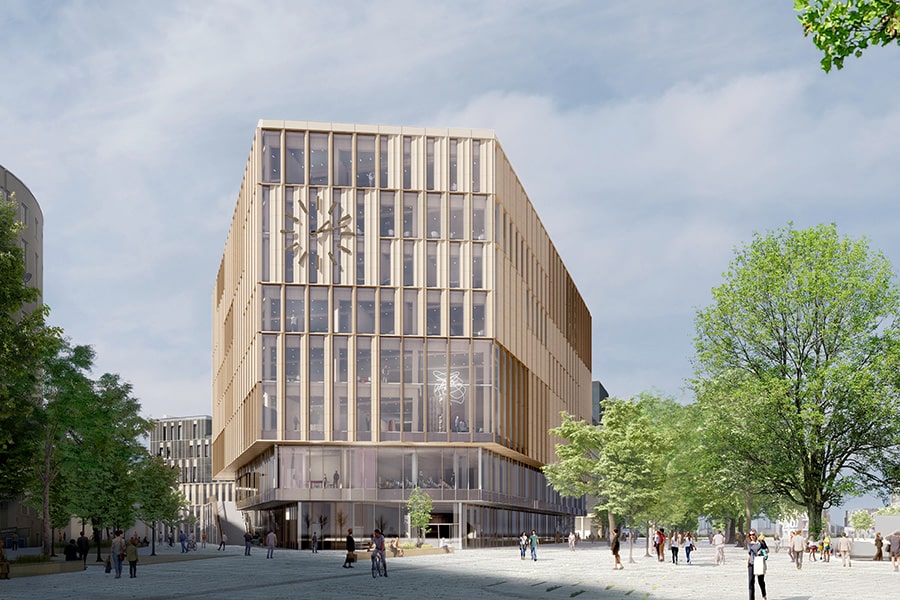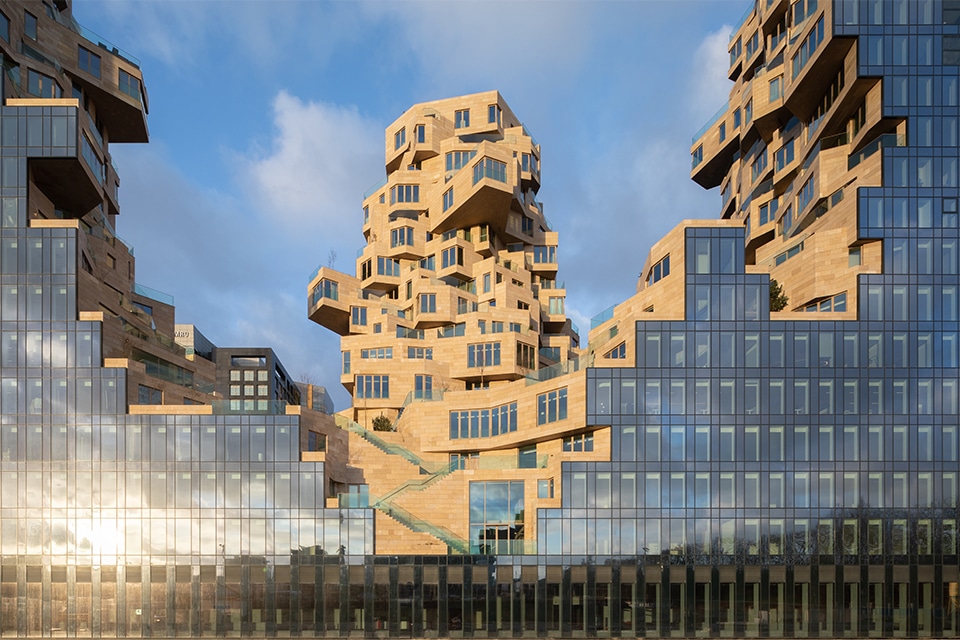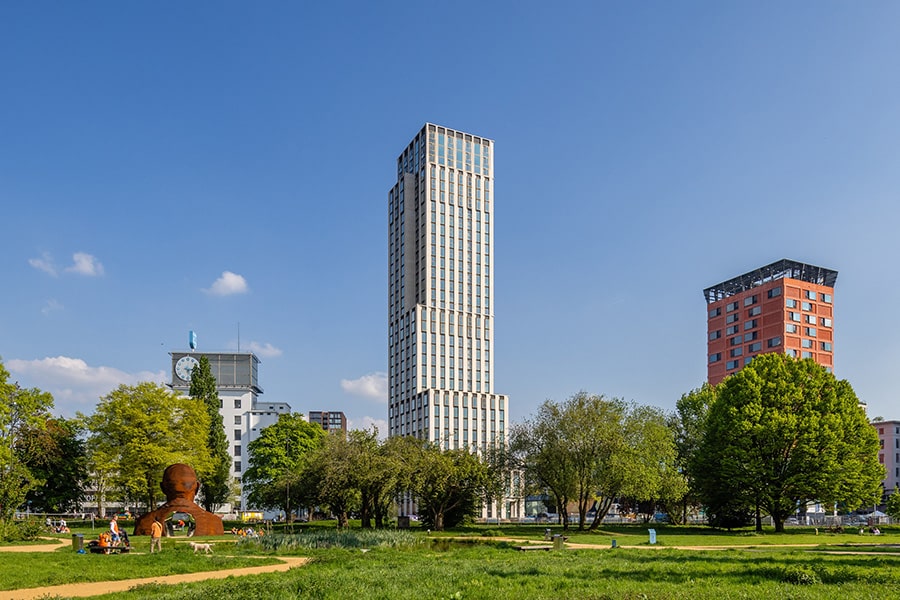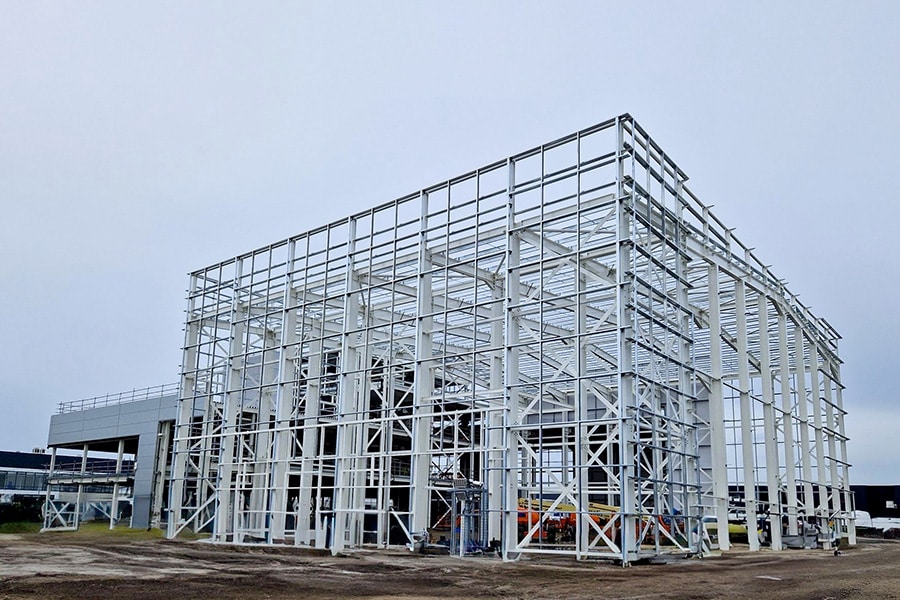
Precast concrete specialist responds to huge housing shortage
Fast, high-quality and 'circular to the bone'
In addition to first-time buyers, the housing shortage is beginning to affect more and more move-up buyers. Although they generally have more to spend, two out of three people moving on are unfortunately seeing their moving plans fall through due to the overheated housing market. And refugees, asylum seekers and migrant workers are also finding it impossible to find suitable housing. "To deal with the housing crisis, large numbers of homes are needed now," emphasizes Rob Hogendoorn, Commercial Director of CascoTotaal. "A seemingly impossible task, now that building sites are becoming scarcer, construction costs are going through the roof, permit processes are too slow and new nitrogen standards seem to be holding construction hostage. Our latest concept in module construction offers an effective solution to all these challenges, taking freedom of design, sustainability, living comfort and circularity to the highest level. And that at an affordable price."

Circle concerns a smart and circular further development of the 3D concrete shells® of CascoTotaal. "The concept includes a standardized module with a maximum interior dimension of 9.6 x 3.6 meters (lxw), which can be used to create numerous types of buildings and building forms," Hogendoorn said. "Circle was developed in close collaboration with KAAN Architects and engineering firm ABT. Architectural and installation principles were therefore taken into account to the maximum extent in the design. Our homes meet the new BENG requirements as well as the Building Code. Because we work with a standardized module, we can also produce from stock. This only makes true industrial modular construction possible, with all the additional (cost) benefits."
Smart and sustainable
Distinctive is the sustainability of Circle, Hogendoorn emphasizes. "The concept is very smart and circularly designed. For example, the production 30% uses less concrete than other construction methods, which also reduces emissions by 30%. In addition, the fact that the modules are transported to the construction site in one go means significant savings in transport movements. In addition, the standardized module allows for high-quality reuse. Due to the careful separation of carcass construction, finishing and installations, components can be easily and properly separated and reused." The Circle modules can not only be applied separately, but can also be placed as legos (shifted) next to and above each other, up to five layers high. "This also makes row houses and even apartment buildings a possibility, optimally utilizing scarce available square meters."
Permanent quality
The modules are suitable for both permanent and temporary construction. The latter in particular is now a godsend, because temporary building permits are granted much more quickly. And construction is also considerably faster, without sacrificing quality, says Hogendoorn. "With Circle, we can achieve temporary construction with permanent construction quality in just a few days. In the ideal situation, the shells are poured today, stripped tomorrow and then finished to size in a few days. By stocking the airframes, we take this construction speed to the highest level." Thanks to the high construction quality, a permanent building permit can still be issued on the homes after, say, 8 or 10 years. "If that doesn't happen, the modules can easily be picked up and moved to another location."
Lower TCO
The fact that you can reuse the homes is particularly interesting for investors, because the depreciation and Total Cost of Ownership is significantly reduced, Hogendoorn said. "If desired, the modules can also be stripped, after which the complete shells can be used in a new project, with a new layout and finish. An advanced drilling protocol and the lack of collapse facilities contribute to this." If no new destination is found, the concrete can be reprocessed into aggregate and reused in the production process. "This keeps the product chain completely closed and our concept is 'circular to the bone.'"
CascoTotaal has since sold 153 Circle airframes. Both for permanent and temporary construction projects. "One construction company first deploys the housing modules for the temporary housing of migrant workers, after which they are moved one-on-one to two recreational parks. And two homes for a housing corporation will also soon be moved to a new location, where they will be given a permanent use," Hogendoorn said. "Our ambition is to start producing 500 shells a year. But also to add a system based on concrete elements, with which we can flexibly open or close recesses for stairs, frames, windows and doors. This enables plug-and-play filling of the recesses and creates even more design freedom. Both in terms of architecture and layout."




